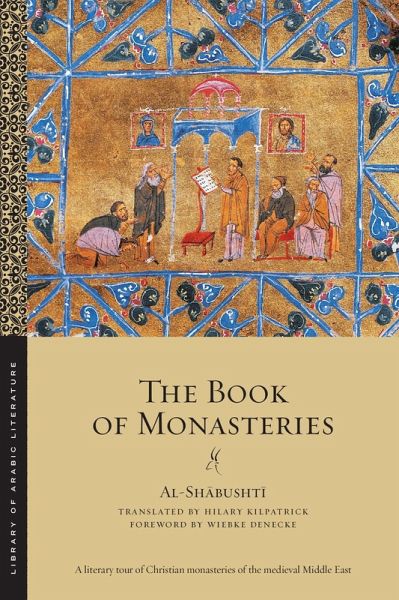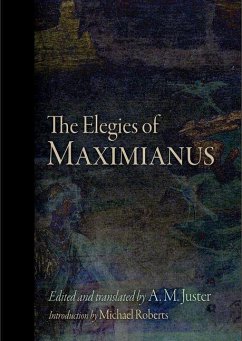
The Book of Monasteries (eBook, ePUB)
Versandkostenfrei!
Sofort per Download lieferbar
12,95 €
inkl. MwSt.
Weitere Ausgaben:

PAYBACK Punkte
6 °P sammeln!
A literary tour of Christian monasteries of the medieval Middle EastThe Book of Monasteries takes readers on a tour of the monasteries of the Middle East by presenting the rich variety of poetry and prose associated with each monastery. Starting with Baghdad, readers are taken up the Tigris into the mountains of south-eastern Anatolia before moving to Palestine and Syria, along the Euphrates down to the old Christian center of ¿irah and onward to Egypt. For the literary anthologist al-Shabushti, who was Muslim, monasteries were important sites of interactions with Christian communities that m...
A literary tour of Christian monasteries of the medieval Middle East
The Book of Monasteries takes readers on a tour of the monasteries of the Middle East by presenting the rich variety of poetry and prose associated with each monastery. Starting with Baghdad, readers are taken up the Tigris into the mountains of south-eastern Anatolia before moving to Palestine and Syria, along the Euphrates down to the old Christian center of ¿irah and onward to Egypt. For the literary anthologist al-Shabushti, who was Muslim, monasteries were important sites of interactions with Christian communities that made up about half the population of the Abbasid Empire at the time.
Each section in this anthology covers a specific monastery, beginning with a discussion of its location and the reason for its name. Al-Shabushti presents poems, anecdotes, and historical reports related to each. He selects heroic and spectacular incidents, illustrations of caliphal extravagance, and events that gave rise to memorable verse. Important political personalities and events that were indirectly linked with monasteries also appear in the collection, as do scenes of festive court life and gruesome murders. Al-Shabushti uses these accounts not to teach history but to offer a meditation on the splendor of Abbasid culture as well as moral and philosophical lessons: the ephemerality of power; the virtues of generosity and tolerance; the effectiveness of eloquence in prose and poetry; the fleeting nature of pleasure and beauty. Translated into English for the first time, The Book of Monasteries offers an entertaining panorama of religious, political, and literary life during the Abbasid era.
An English-only edition.
The Book of Monasteries takes readers on a tour of the monasteries of the Middle East by presenting the rich variety of poetry and prose associated with each monastery. Starting with Baghdad, readers are taken up the Tigris into the mountains of south-eastern Anatolia before moving to Palestine and Syria, along the Euphrates down to the old Christian center of ¿irah and onward to Egypt. For the literary anthologist al-Shabushti, who was Muslim, monasteries were important sites of interactions with Christian communities that made up about half the population of the Abbasid Empire at the time.
Each section in this anthology covers a specific monastery, beginning with a discussion of its location and the reason for its name. Al-Shabushti presents poems, anecdotes, and historical reports related to each. He selects heroic and spectacular incidents, illustrations of caliphal extravagance, and events that gave rise to memorable verse. Important political personalities and events that were indirectly linked with monasteries also appear in the collection, as do scenes of festive court life and gruesome murders. Al-Shabushti uses these accounts not to teach history but to offer a meditation on the splendor of Abbasid culture as well as moral and philosophical lessons: the ephemerality of power; the virtues of generosity and tolerance; the effectiveness of eloquence in prose and poetry; the fleeting nature of pleasure and beauty. Translated into English for the first time, The Book of Monasteries offers an entertaining panorama of religious, political, and literary life during the Abbasid era.
An English-only edition.
Dieser Download kann aus rechtlichen Gründen nur mit Rechnungsadresse in A, D ausgeliefert werden.













